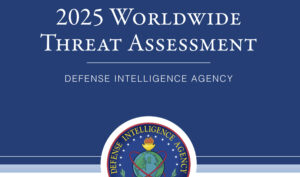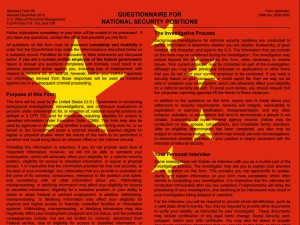Military searches soldier’s records for clues in killings of Afghan civilians
(Washington Post) Military investigators were combing through a U.S. Army sergeant’s personnel and medical records Monday to determine what might have caused him to slip away from his base in southern Afghanistan and allegedly massacre 16 sleeping villagers, most of them women and children, in the black of night.
U.S. commanders said they think the shooter acted alone in Sunday’s rampage in the rural Panjwai district of Kandahar province. But they were struggling to deduce a motive for the attack, which has prompted outrage among Afghan officials and inflamed an already strained relationship between Washington and Kabul.
The suspect, a trained sniper, received a diagnosis of traumatic brain injury after sustaining a head injury in Iraq during a vehicle rollover in 2010, two U.S. military officials said, speaking on the condition of anonymity to discuss sensitive details of the case. The soldier was subsequently declared fit for duty, the officials said.
Other U.S. military officials said they were working quickly to build a case against the suspect but declined to identify him until charges could be filed. They described him as a married, 38-year-old staff sergeant with two children who joined the Army 11 years ago. They said he had served three tours of duty in Iraq and deployed to Afghanistan for the first time in December. . . . .
. . . . U.S. officials said the soldier abruptly walked off a combat outpost about 3 a.m. Sunday local time. Allen said that an Afghan soldier standing watch reported the unauthorized departure but that others on the base could not mobilize quickly enough to track down the missing American before the attack, the deadliest on civilians by a U.S. service member during the decade-long Afghanistan war. . . . Defense Secretary Leon E. Panetta said the soldier returned to the base on his own, admitted what he had done and surrendered. . . .
. . . . .The soldier’s unit, the 3rd Stryker Combat Brigade, 2nd Infantry Division, deployed to southern Afghanistan in December from Joint Base Lewis-McChord, an Army and Air Force installation near Tacoma, Wash.
The cornerstone base of the Pacific Northwest recently became a focus of public scrutiny after allegations that its military doctors had altered diagnoses of post-traumatic stress disorder for hundreds of soldiers.
A military probe of the base’s medical center is scrutinizing assertions by staff members and soldiers that, starting in 2007, diagnoses for at least 300 service members were downgraded to lesser conditions. Some patients have alleged that the diagnoses were changed so that the military would not be responsible for their treatment and long-term care.
The commander of Lewis-McChord’s Madigan Army Medical Center has been placed on leave during the investigation, and a leading forensic psychiatrist has resigned. . . . . [read more]
Mental illness more likely behind Afghan shooting than PTSD, psychiatrist says
(CNN) While officials have provided few details about the U.S. Army soldier accused of killing 16 Afghan men, women and children in a house-to-house shooting rampage in two villages, one psychiatrist speculated the incident may have stemmed from mental illness, but not necessarily post-traumatic stress disorder.
“Post-traumatic stress disorder has a cluster of symptoms, and violence, or violence against, others is not usually considered part of that diagnosis,” said Paul Newhouse, a professor of psychiatry at Vanderbilt University and a former Army psychiatrist. “So I think it’s more likely that we’re going to discover that there was some either psychotic illness or delusional condition or some evidence that this person was more seriously deranged or impaired than we would typically see in PTSD.” . . . .
. . . . Newhouse compared the shootings to mass killings seen in the United States, at Virginia Tech and in Tucson, Arizona. Individuals accused in those incidents “turn out to have given off a lot of signals of mental illness or severe disturbance before the incident, and I think that’s where I would be starting my investigation or my inquiry,” he said.
“I think we are in a new situation for the U.S. Army over the last few years, because we are now having a professional army with multiple deployments, multiple tours in the combat zones, and this is something the Army has really not had a lot of experience with until the last decade or so,” Newhouse said. . . . . [read more]
———————————
Pink slime in ground beef: What’s the big deal?
(CBS/AP) “Pink slime,” the gross-sounding name for ammonia-treated ground beef, is on America’s mind in light of a recent report that up to 15 percent of beef found in children’s government-subsidized school lunches contain the colorful-sounding stuff. . . . .
Just what exactly is pink slime? It’s actually “lean finely textured beef,” a low-cost ingredient in ground beef made from fatty left over meat trimmings from other cuts. The bits are heated to about 100 F and spun to remove most of the fat, then compressed into blocks for use in ground meat. The product, made by South Dakota-based Beef Products Inc. (BPI), is then exposed to “a puff of ammonium hydroxide gas” to kill bacteria, such as E. coli and salmonella. . . . .[read more]
——————————–
H.R.347 — Federal Restricted Buildings and Grounds Improvement Act of 2011 (Enrolled Bill [Final as Passed Both House and Senate] – ENR)
H.R.347
One Hundred Twelfth Congress
of the
the third day of January, two thousand and twelve
An Act
To correct and simplify the drafting of section 1752 (relating to restricted buildings or grounds) of title 18, United States Code.
Be it enacted by the Senate and House of Representatives of the United States of America in Congress assembled,
- This Act may be cited as the `Federal Restricted Buildings and Grounds Improvement Act of 2011′.
- Section 1752 of title 18, United States Code, is amended to read as follows:
-`Sec. 1752. Restricted building or grounds
- `(a) Whoever–
-
- `(1) knowingly enters or remains in any restricted building or grounds without lawful authority to do so;
-
- `(2) knowingly, and with intent to impede or disrupt the orderly conduct of Government business or official functions, engages in disorderly or disruptive conduct in, or within such proximity to, any restricted building or grounds when, or so that, such conduct, in fact, impedes or disrupts the orderly conduct of Government business or official functions;
-
- `(3) knowingly, and with the intent to impede or disrupt the orderly conduct of Government business or official functions, obstructs or impedes ingress or egress to or from any restricted building or grounds; or
-
- `(4) knowingly engages in any act of physical violence against any person or property in any restricted building or grounds;
- or attempts or conspires to do so, shall be punished as provided in subsection (b).
- `(b) The punishment for a violation of subsection (a) is–
-
- `(1) a fine under this title or imprisonment for not more than 10 years, or both, if–
-
-
- `(A) the person, during and in relation to the offense, uses or carries a deadly or dangerous weapon or firearm; or
-
-
-
- `(B) the offense results in significant bodily injury as defined by section 2118(e)(3); and
-
-
- `(2) a fine under this title or imprisonment for not more than one year, or both, in any other case.
- `(c) In this section–
-
- `(1) the term `restricted buildings or grounds’ means any posted, cordoned off, or otherwise restricted area–
-
-
- `(A) of the White House or its grounds, or the Vice President’s official residence or its grounds;
-
-
-
- `(B) of a building or grounds where the President or other person protected by the Secret Service is or will be temporarily visiting; or
-
-
-
- `(C) of a building or grounds so restricted in conjunction with an event designated as a special event of national significance; and
-
-
- `(2) the term `other person protected by the Secret Service’ means any person whom the United States Secret Service is authorized to protect under section 3056 of this title or by Presidential memorandum, when such person has not declined such protection.’.
Speaker of the House of Representatives.
Vice President of the United States and
President of the Senate.
Civil Liberties Advocates See Backslide in New Trespass Law
(Wall Street Journal) The difference one word can make. Last week, President Obama signed into law the Federal Restricted Buildings and Grounds Improvement Act of 2011, which has been called “the anti-Occupy” bill, but as the ACLU points out, it was the elimination of one word from an existing law that could make life harder for protesters.
As first-year criminal law students know, most crimes require that a certain state of mind be proven. The new law re-writes an existing 1971 trespass law, which stated someone had to act “willfully and knowingly” when committing the crime.
Now, the language has been changed so that the actor only need behave “knowingly,” which would mean knowing one was in a restricted area but not necessarily that he or she was committing a crime. This small change would allow the Secret Service to arrest protestors more easily, the ACLU said in a statement. . . . .
——————————————
- Hemy Neuman charged with murder of co-worker’s husband Russell Sneiderman in 2010
- Neuman claims angel resembling Olivia Newton-John told him Sneiderman’s children were his
- Also says devil who sounded like Barry White told him to kill Sneiderman . . . . [read more]














You must be logged in to post a comment.